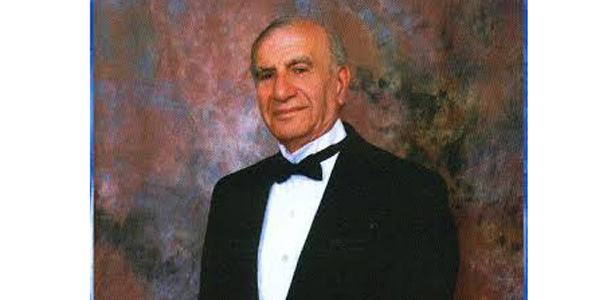Harutioun Kendimian: “My songs are in Armenian and about Armenia…”

On July 19, a vocal concert will be held at the hall of Sayat-Nova Music School with the participation of Harutioun Kendimian, who was born in Aleppo and currently lives in Chicago…
“Hayern Aysor”: Mr. Kendimian, perhaps it is not our fault, but we don’t know you or have any information about your career. However, we do know that you have been advocating Armenian songs in the Near East for many years and now in the United States. Could you tell us about that?
Harutioun Kendimian: Of course. First, I must say that I’ve never liked presenting myself and have never tried to have people talk about what I do. I don’t consider myself a professional singer. So, I’m not concerned about the fact that few people in Armenia know me. The Diaspora is large and expansive. Therefore, it’s hard to reflect on many Diaspora Armenian figures and present their careers. I was born in Aleppo. My parents weren’t wealthy, but were nationalist and were devoted to the issues of national concern. They would do everything they could to make sure I received an Armenian upbringing. Perhaps it as my father’s accentuated attitude toward the Armenian nation that made me love Armenian songs when I was a child and start singing many songs at the age of four. Later, I had a great desire to receive a musical education, but my family didn’t have enough money to help me make my wish come true. After I moved to Beirut, Harutioun Setian helped me receive a musical education and become entirely dedicated to song.
“Hayern Aysor”: Where have you mainly performed? What have you done?
H. K.: I’ve spent most of my life singing in the choirs of Armenian churches. When I was a teenager, I would sing in the choirs of Armenian churches of Aleppo, and later in Beirut. For more than 20 years, I’ve been the scribe and choirmaster of the Armenian church in Chicago. In the Diaspora, the Armenian Church is not only the house of faith, but also a strong factor for education and culture. As a scribe in Beirut and Chicago, I have always attached importance to the role and significance of a choir and have been certain that song is one of the best ways of helping Armenians preserve their national identity. The choirs that I have directed have participated in different competitions. They’ve even performed in Armenia. Our aim to turn Armenian song into one of the symbols of Armenian identity and to live with Armenian songs has been appreciated everywhere.
“Hayern Aysor”: Haven’t you ever had the desire to immigrate to Armenia?
H. K.: There’s a very interesting story behind that. In 1946, my father was the first to register and express the desire to move to Armenia with his family. Our family had a different notion and understanding of Armenia. We were excited and were impatiently waiting for our trip to Armenia. However, some evil person had spread rumors to people involved with immigration affairs that my father was a fanatic member of the Armenian Revolutionary Federation-Dashnaktsutyun and that this was something that wouldn’t be accepted in Soviet Armenia. Because of that, we weren’t allowed to visit Armenia. To tell you the truth, I must say that my father was a nationalist, but never a fanatic member of the Dashnaktsutyun. He appreciated Armenia and wanted all Armenians to come together in Armenia…Unfortunately, our wish didn’t come true. We faced difficulties because my father had already sold our house to a Muslim Arab, who didn’t want to return it to us. Fortunately, there was a good Arab who helped us…
“Hayern Aysor”: You’ve devoted many years of your life to Armenian song. I’ve already taken a look at your repertoire, and I was pleased and surprised. Being a baritone, you perform many difficult songs, even songs that haven’t been performed for a long time now. How do you form your list of songs?
H. K.: My songs are in Armenian and about Armenia. Therefore, I’ve always been guided by the principle to select songs that fall in line with the spirit and essence of our nation and to be able to express my thoughts and feelings through song, as well as always feel like an Armenian. In Yerevan I’ll be performing one of Geghuni Chtchyan’s songs. Even though it’s not in my range, it captured my heart. I’ll be singing with the accompaniment of the composer because he claims that he still hasn’t found a singer that will perform the song as he had wanted it to sound. I’ll have to try to satisfy the composer. I also perform arias from some operas that are also Armenian, in the Armenian language and about Armenians.
“Hayern Aysor”: Are Armenian songs in demand in the Diaspora, particularly in Chicago where, as you know, there is a lack of Armenian community life?
H. K.: Yes, there are no national traditions in Chicago as there are in California and the other Armenian communities that are considered the conventional communities. However, the Armenian Church has become the center for all Armenians in Chicago. Our choir has many supporters that attend our events. You know, we’re all devoted to preserving the Armenian language, especially to make sure that the youth preserve the native language. It’s a difficult objective to meet, but we do everything possible to preserve our essence through song.
“Hayern Aysor”: You’ll be giving a concert in Yerevan on July 19. We wish you success and the confidence that the Armenian audience will receive you with pleasure.
H. K.: Thank you.
Interview by Levon Mutafyan




 Արևելահայերեն
Արևելահայերեն Արևմտահայերեն
Արևմտահայերեն Русский
Русский






